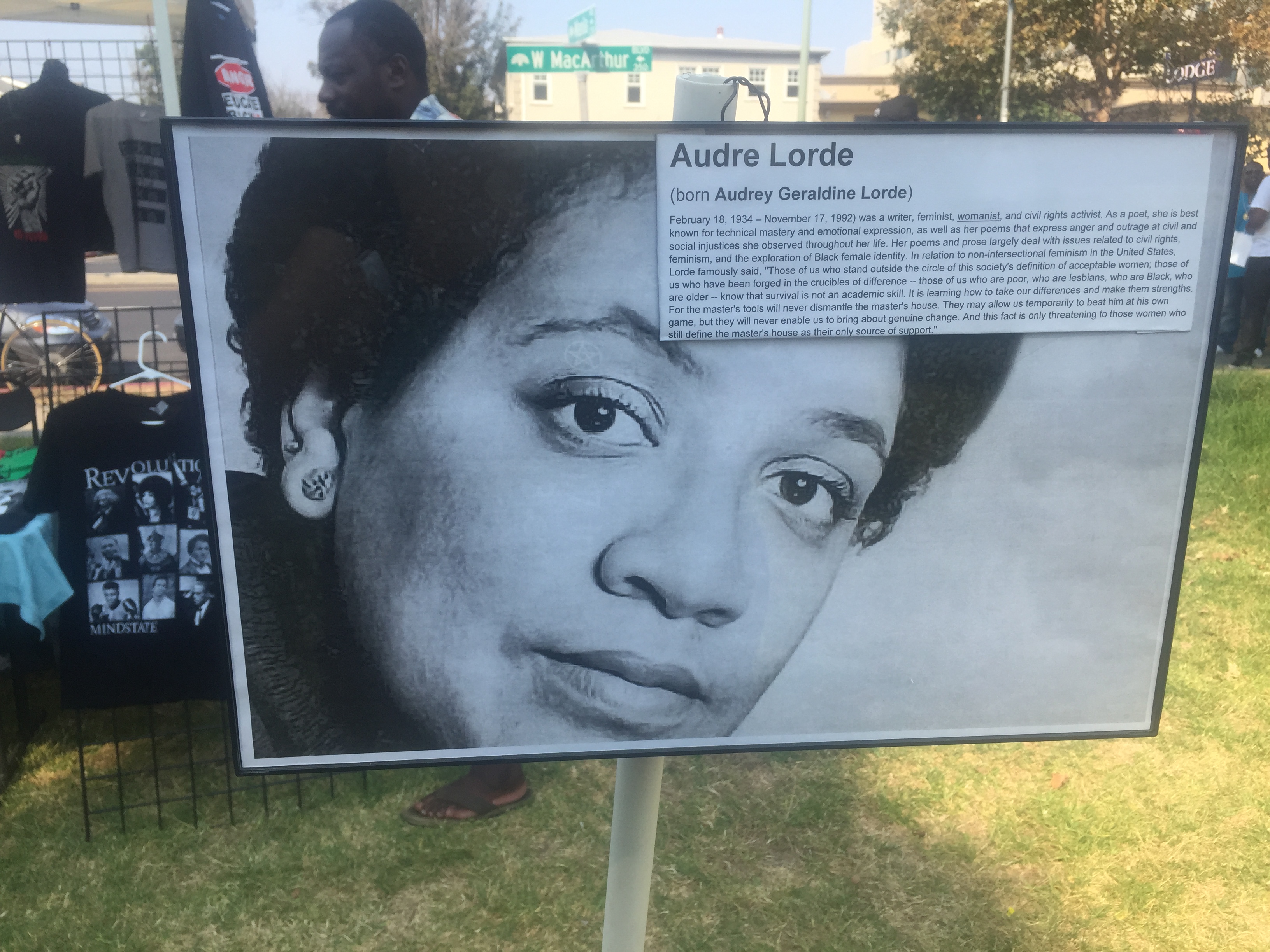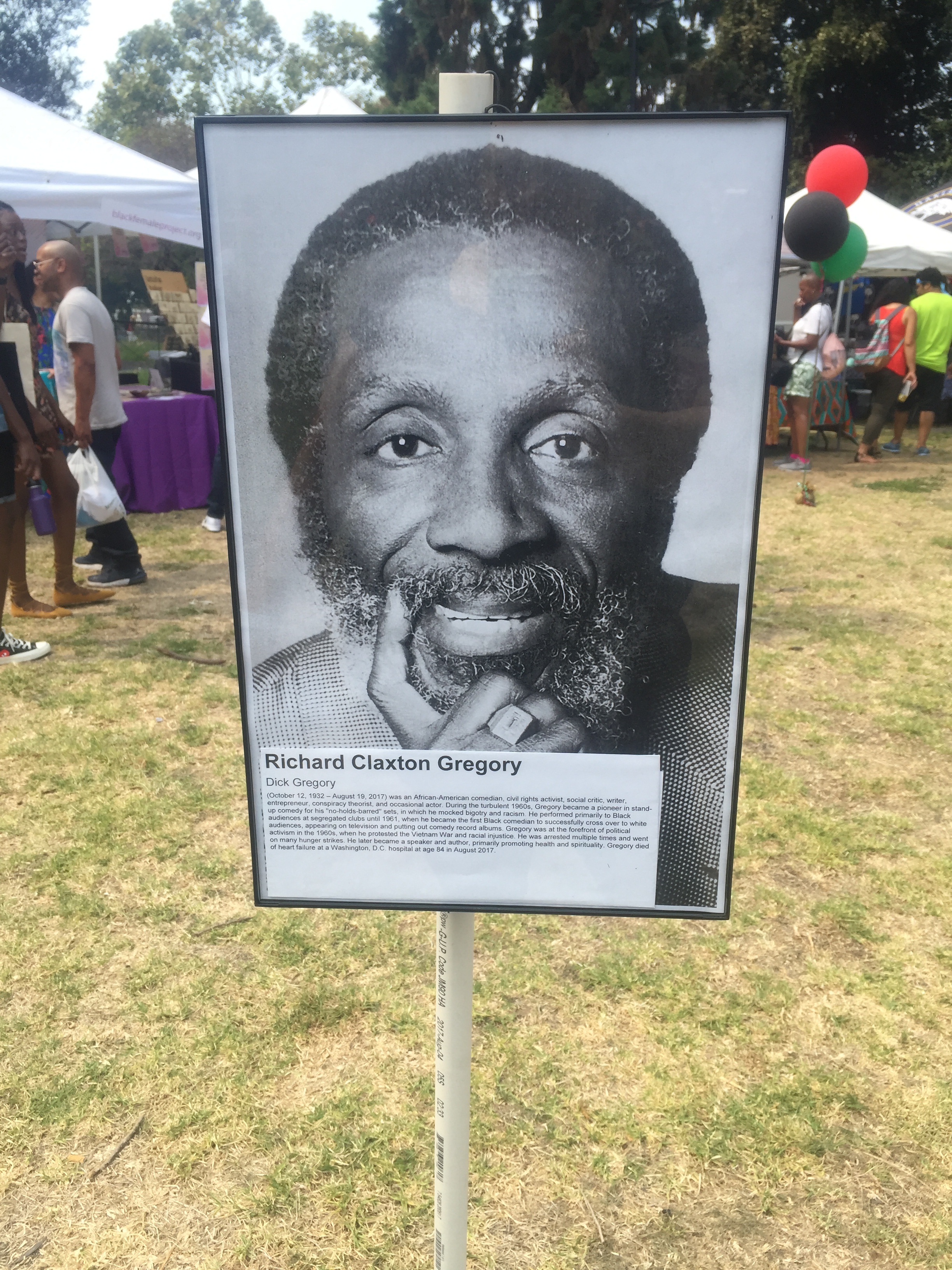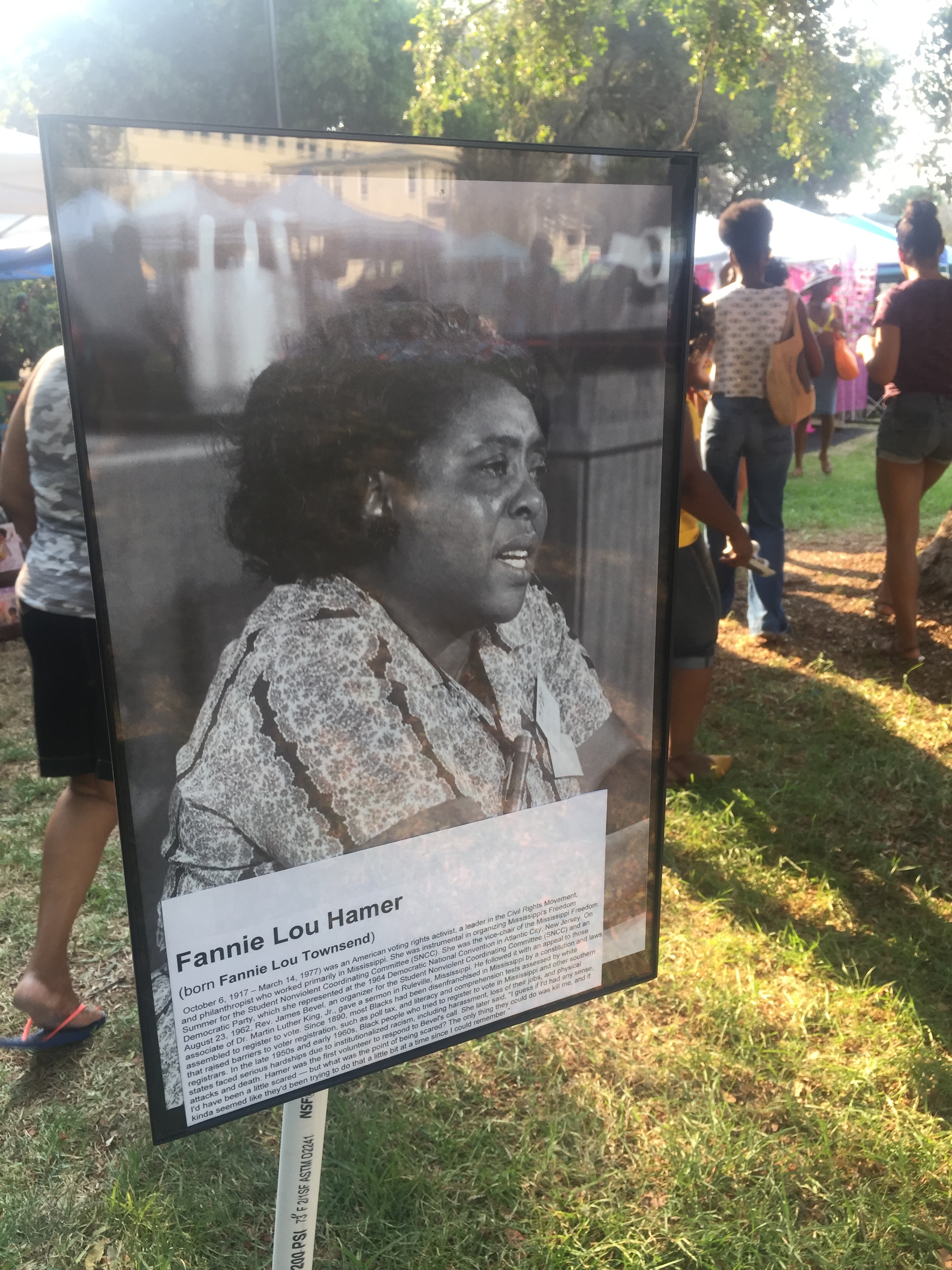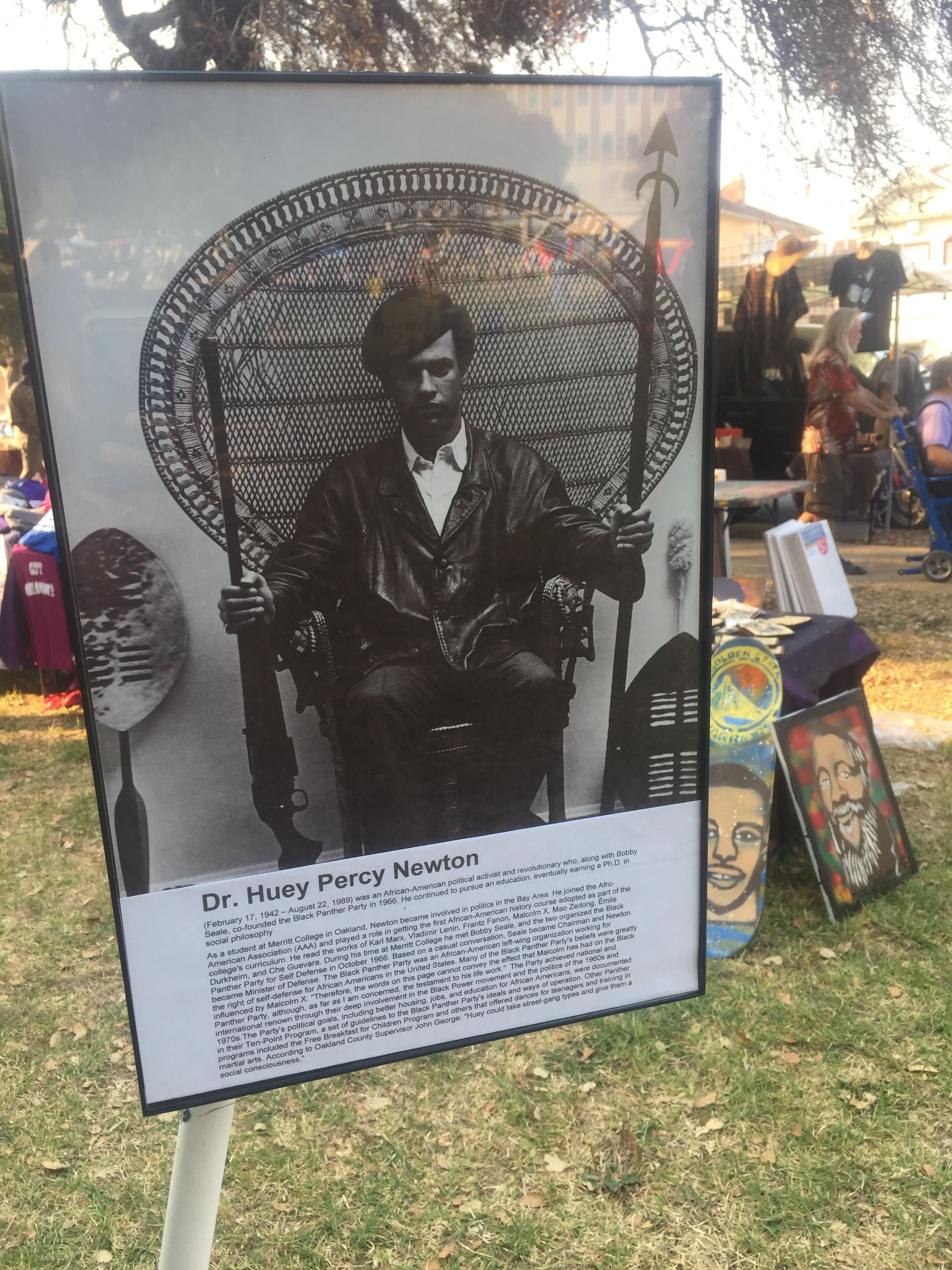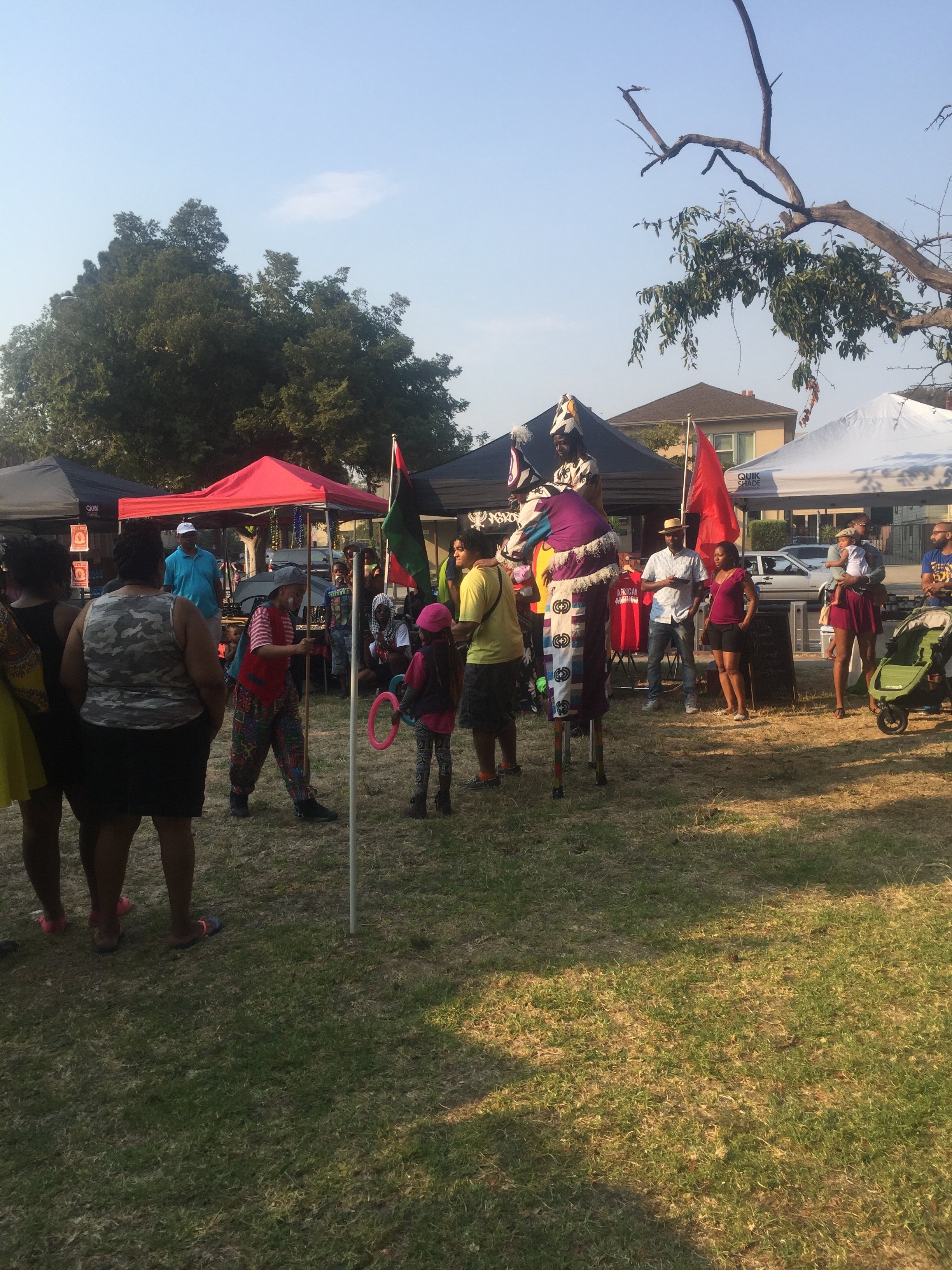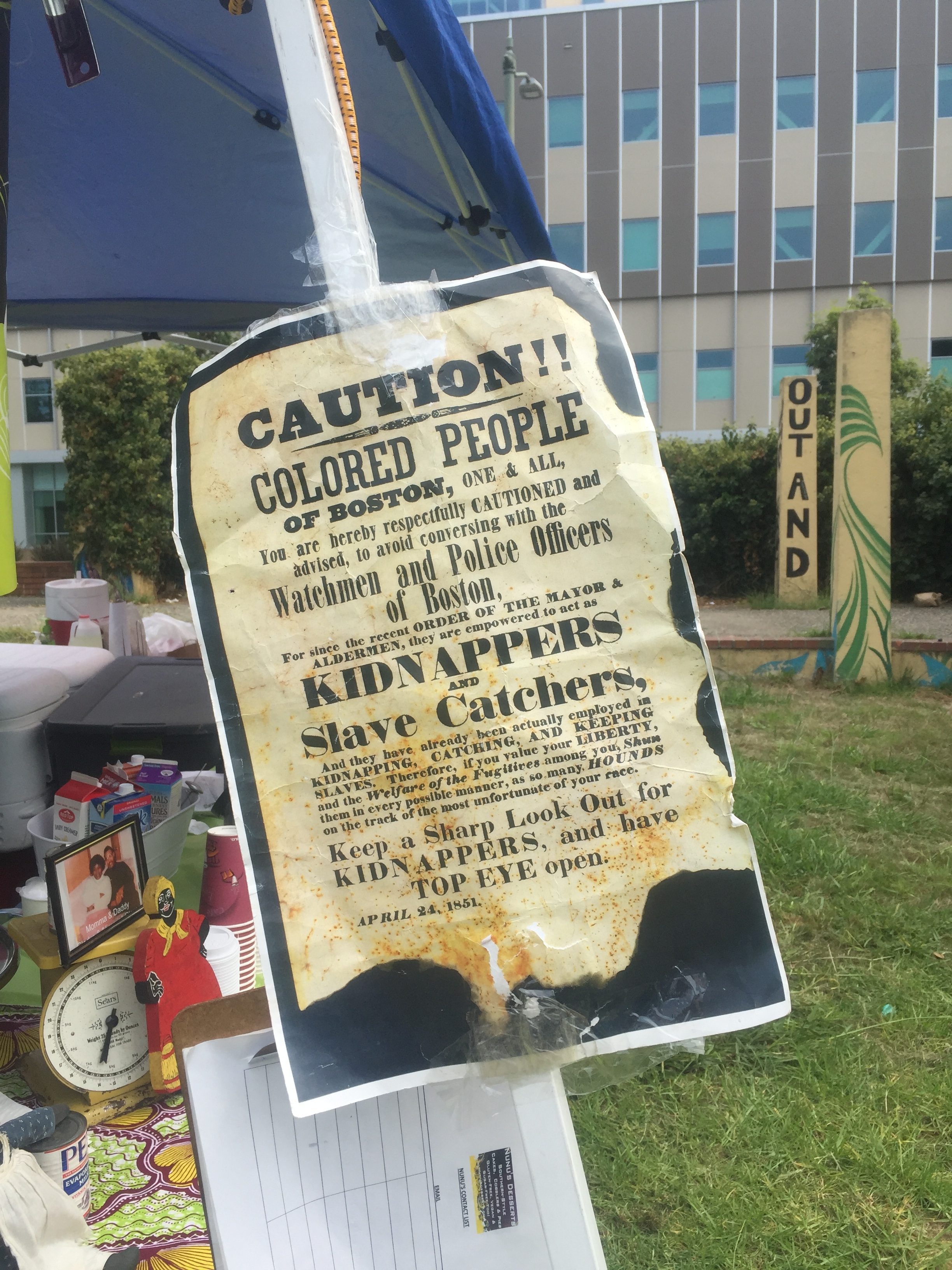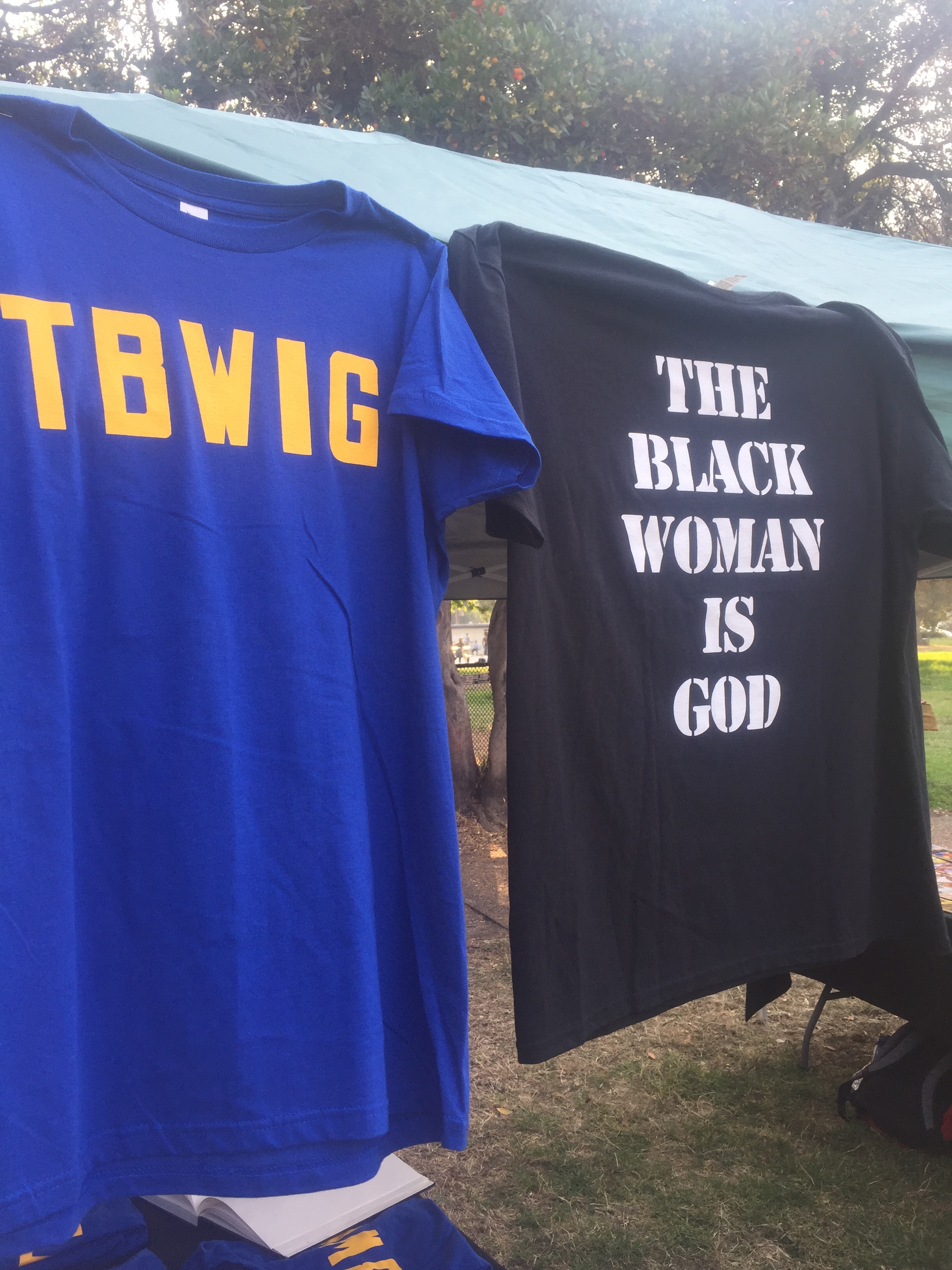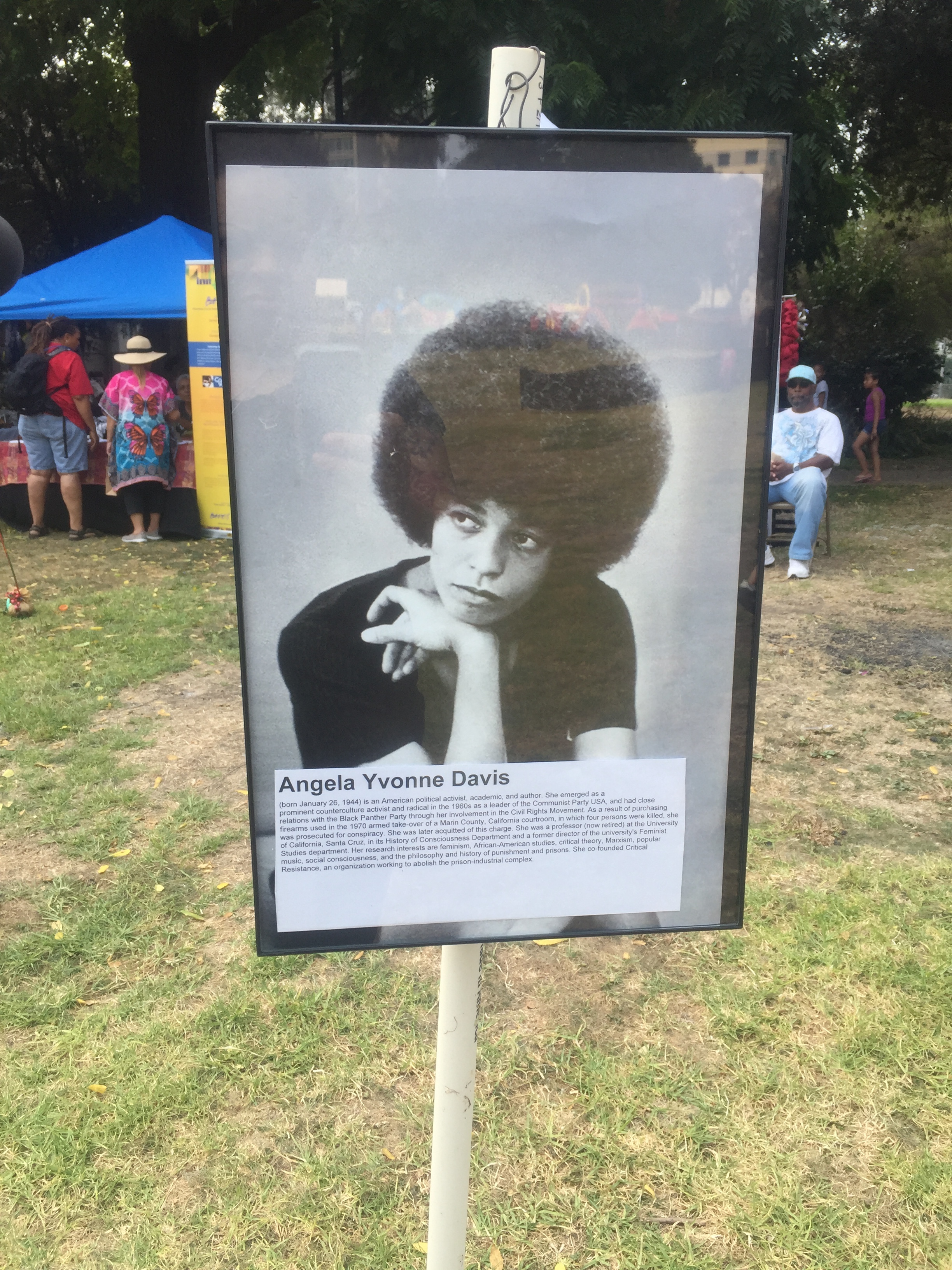
This year the Pan-African Festival celebrated it’s 7th year of festivities September 3 in Oakland, California at historic Mosswood Park. The event was filled with people of all types enjoying the fresh air, shopping, and eating food from the many vendors.
This was my first year at the Pan-African festival, and I decided to go since I am always looking for ways to immerse my children in celebration of their African heritage. With camp chairs and drinks in hand, we met our other family members under the shaded trees where we set up camp.

[C. Blanton]
“Oakland’s 7th annual Pan-African Festival is a free family event carefully curated to cultivate pride, joy, self-determination and sovereignty for diasporic Africans. Through participation in a full day of holistic health workshops, group games, arts, crafts and entertainment, the day intends to celebrate the rich cultures of Africa and it’s global influences.”
The festivities included a plethora of speakers, including performers and kid-related activities to engage the whole of the family.
The website goes on to talk about the mission of the organization and the purpose of events such as this.
“Our mission is to improve the holistic health of the Pan-African community in Oakland, California, which includes physical, mental and spiritual. We inform, educate, heal and inspire people of African descent to restore a sense of community, cultural unit.”
In today’s challenging times, it seems like opportunities to engage in community that feeds our physical, mental, and spiritual well-being is a much needed thing.
The wealth of knowledge and diversity of the attendees was clearly a centerpiece of the festival’s experience, including people of many different faiths and differing paths to the African diaspora. There were many practitioners of African Traditional Religions, followers of Orisha based practices, and an overall reverence of the godliness of the woman.
I was excited to be in a community space of celebration and acknowledgement, but I didn’t anticipate the incredible reverence of our ancestors and leaders. Nor did I anticipate the mini shrines throughout the festival space. From acknowledgements on the stage to those various shrines setup around the park grounds, there was a clear spirit of honoring our ancestors who were present at the festival.
I found it interesting to see people of the African diaspora navigating the vast grey area of African and American heritage and culture. Food trucks sold foods that were identified as African or African fusion, alongside many Black-owned vendors selling goods that appealed to the Black culture of the day and the African heritage of old.

[C. Blanton]
It is an interesting and relevant study of culture to observe the many different ways that people incorporate the significance of ancestral reverence into their societal norms. The ongoing incorporation of honoring those who have made a significant impact on the plight of African-American people connects to the roots found in many different African spiritual cultures. In Orisha worship, the Egun refers to the ancestors, most often those connected to us by blood or religious lineage.
On the website The Yoruba Religious Concepts, writers reference the importance of connection to the ancestors in Yoruban practices:
“Egun is the collective representation of the Ancestors.We often call our Ancestors by the name, Egun, which in Yoruba language means bones. As we walk upon the Earth our feet press against the bones of the Ancestors on whose shoulders we stand. Like most indigenous cultures of the world, Africans believe that those who go before us make us what we are. When we walk on the Earth, we literally stand on the shoulders of those who bodies have been committed to the soil, the water, and the wind. Our Ancestors influence our lives through heredity and human culture. However, there is an even deeper connection to the Ancestors as active spirits who continue to influence our lives. We humans honor them with altars, music and prayer. They in turn offer us guidance, protection and prosperity. We treat our ancestors with loving reverence.”
As a participant at the Pan-African festival, it became increasingly clear that this was exactly what we were collectively doing in honoring the ancestors of our journey as people of the African diaspora. While that journey within this country has historically been a turbulent and traumatizing one, the importance of connection with the Mighty ones continues to be an important cultural thread throughout the generations.
Celebration or reverence of ancestors is not exclusive to African paths of spirituality and are incorporated by many indigenous traditions of belief and practice, as is the respect given to the elders of a community. This particular festival pointed out something culturally interesting: the ability to reach across a large community of people connected to the blood of a land far away, and yet so close, and to find a commonality that weaves through our interconnected stories as children of the diaspora.
Despite the continent of Africa being huge and encompassing many different traditions, languages, histories, and communities, there is still a way to connect through the struggle of the ancestors and the elders of our stories.
Significant to the the overall experience was also the acknowledgement that in the struggle of historical oppression; the honored elders and ancestors were often highlighted for their significant roles and sacrifices in the various movements of revolution and freedom. From warriors to scholars, from revolutionaries to the persecuted, there is a fine line in between the accomplishments of the ancestors and their direct connection to a fight for liberation.
In planting these mini shrines around the festival, the essence of the ancestors became tangible in a way that an average festival of like-minded people would not have been.
There was also a small shrine to those who were enslaved, and the history of chattel slavery immediately brought the significance of the struggle to the forefront. This small display served as a holder of space with a collection of items that served as clear reminders of a history that serves to bridge so much of our African and American lineages together. It also served as a talking piece for the generation of children asking what the items were, or why we were referred to as “colored” on the posters.
In remembrance and honor of the work of my ancestors, I took the time to talk about the shrines, walk around the grounds with my kids, tell stories of the pictures, and give thanks for the sacrifices that have enabled us to be closer to an idea of liberation and freedom.
I had the opportunity to connect with numerous people during the festival to discuss the festival and the impact of honoring the ancestors in this setting. While there were many ongoing conversations throughout my time there, here are a couple of the statements that impacted me greatly.
“Too often communities forget to celebrate the women. The Black woman is God and when we honor her, we honor everyone.”
“How amazing it is to look around this space and see the children of our ancestors dancing among the pictures of our people. We need more of this.”
“We are so beautiful. We have always been a beautiful people.”
“Spending time in the sun with family and friends? What better way to connect to our purpose here on this earth.”
There are many people who do not know the names of their ancestors or individuals connected through lineage; there are many people who are not able to connect to their “people” through the macro lens of culture and history. This type of connection enables us to pass on the stories of our ancestors for generations to come, and find ourselves in the stories of those whose shoulders we stand on.
Celebration is one of the most powerful rituals of reverence within our arsenal of spiritual connectivity.
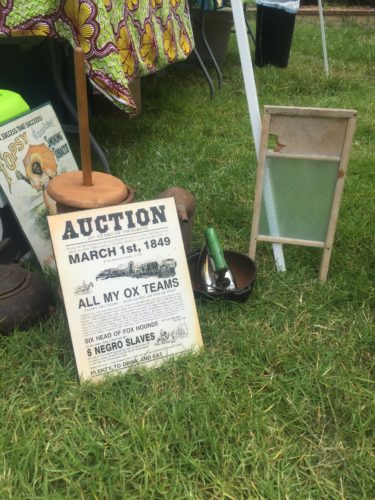
[C. Blanton]
This challenge has impacted Black people since the middle passage, and it will continue to shape our view of ancestral connection into the future. Maybe the power of community ancestral reverence can be a part of the medicine used to support collective healing for groups like ours.
As the seasons change we often see more discussions regarding the honoring of elders, ancestors, and those who have now passed. For many of us the approaching time of year is a reminder that the ancestors are present and our work with them continues.
Whether we are doing the work of our ancestors of flesh and bone, or those of spirit, lineage, culture and history, their stories continue to be a living part of our foundation.
How do you celebrate your ancestors of culture? How can you hold space for those who have contributed to your story and ability to thrive despite your lack of physical connection to them? How do you honor the sacrifice of those who came before you?
What stories do you hold sacred and what do you do with them? All of these questions are valuable and we could all spend time accessing th answers in this year’s transition toward the darker half of the year.
* * *
The views and opinions expressed by our diverse panel of columnists and guest writers represent the many diverging perspectives held within the global Pagan, Heathen and polytheist communities, but do not necessarily reflect the views of The Wild Hunt Inc. or its management.
The Wild Hunt is not responsible for links to external content.
To join a conversation on this post:
Visit our The Wild Hunt subreddit! Point your favorite browser to https://www.reddit.com/r/The_Wild_Hunt_News/, then click “JOIN”. Make sure to click the bell, too, to be notified of new articles posted to our subreddit.

